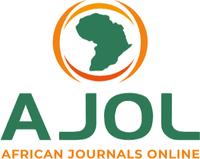Synthesis, characterization and comparative antibacterial study of Copper II and Zinc II Vanillin-2-aminophenol Schiff base and their mixed ligand Complexes
Keywords:
Antibacterial activity, infrared spectroscopy, Copper (II) complex, Schiff base, Zinc (II) complexAbstract
Schiff bases are organic compounds that form by the reaction of aldehyde and amino or ketone groups to produce a new chemical bonding known as azomethine (-HC=N), which shows an impact on microbial activities. Schiff base was synthesized by reacting vanillin with 2-aminophenol in a 1:1 mole ratio. Transition metal complexes of Cu (II) and Zn (II) were complexes using a Schiff base in a 1:2 mole ratio metal-ligand (M-L). Additionally, mixed ligand complexes were prepared using the synthesized Schiff base and 2-aminophenol in a 1:1:1 mole ratio of ligand-metal-ligand (L-M-L). These were characterized by solubility, conductivity, melting point, UV, and IR spectroscopy. The solubility analysis indicates that all the complexes were soluble in acetone, ethanol, dimethyl sulfoxide (DMSO), methanol, and dimethyl formamyde (DMF). The melting point suggests that the complexes are pure; the conductivity measurement shows the lower values indicate the complexes exhibit non-electrolytic behavior. The infrared date for the metal complexes demonstrated that the ligand binds to the metal ion via nitrogen from immine backbone, oxygen from the methoxy group, and oxygen from the phenolic group, suggesting a six-coordinate geometry. The infrared data of the mixed ligand complex indicates the ligand attached to the metal ion through azomethine nitrogen, oxygen from the methoxy group, oxygen from the phenolic group, and nitrogen from the amino group, indicating a six-coordinate geometry. The compounds were assessed for their effectiveness against gram-negative bacteria, including Escherichia coli, Streptococcus pyrogens, Klebsiella pueumonia, and gram-positive bacteria, such as Bacillus subtilis, utilizing the disc diffusion technique. In comparative analysis of the complexes, Cu (HL1)2 and Cu (HL1) (HL2) were observed to be more potent than Zn (HL1)2 and Zn (HL1) (HL2).





